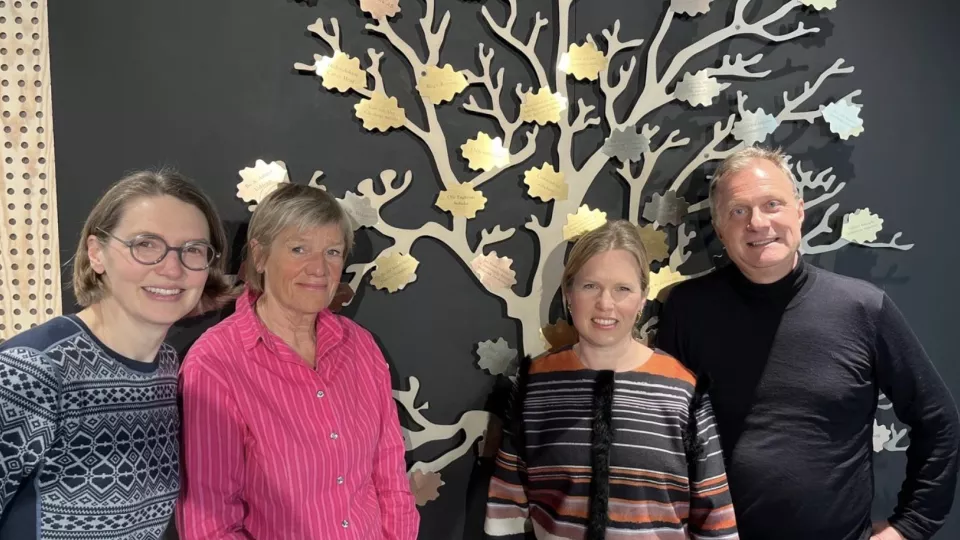In Sweden, roughly 90,000 people die each year and around 80 percent of these are estimated to have been in need of palliative care, a health and medical care that aims to alleviate physical, psychological, social and existential suffering and promote the quality of life for patients with progressive, incurable illness or injury. The activities at The Supportive and Early Palliative Care Lab have a clear patient focus and the research is focused on early integration of palliative care in serious illness. - We are very grateful for this donation, which shines a spotlight on an often overlooked area of research. The gift means that we can strengthen our group with a doctoral position - an important step forward for the group's development as well as for research and clinical development, says Jenny Klintman, one of four physicians who are behind the research effort.
Early palliative care has many advantages
Research has shown improved quality of life, better symptom control, reduced hospital admissions and, in some studies, even extended life for patients who receive early palliative care. For example, good symptom relief has been shown to be able to help patients with cancer complete their tumor-targeted treatment without having to be admitted to hospital, so that they can maintain as good a quality of life and as good a general condition as possible during this time. This reduces the pressure on relatives who often have to bear a great deal of responsibility in the care, in addition to their concern, of the sick person. Early palliative care also creates opportunities for in-depth conversations about prognosis and treatment options as well as risks with the tumor-directed treatment and can contribute to avoiding meaningless treatment near the end of life. The use of emergency and intensive care as well as hospital re-admissions can also be reduced.
An improved Swedish healthcare system
Several international cancer organizations today recommend a care model based on early palliative care, and more and more voices are being raised to make such care available to Swedish patients to a greater extent than is happening today. The investment in the research group is still in its infancy, but the group has already taken several initiatives which, in the long run, can contribute to such care becoming a reality. - Mikael Segerlantz and Eva Brun have shown in an already completed clinical trial - ALLAN - carried out in Lund that early integrated palliative home care increases quality of life and reduces the need for hospital care. We have also started a collaborative study with the Surgery Clinic at SUH, as well as several registry-based projects where we examine the Scanian population based on questions about palliative care needs and how these can be met. Such mapping will help us identify potential improvements compared to today's routines and also knowledge gaps for further research
